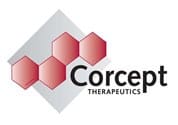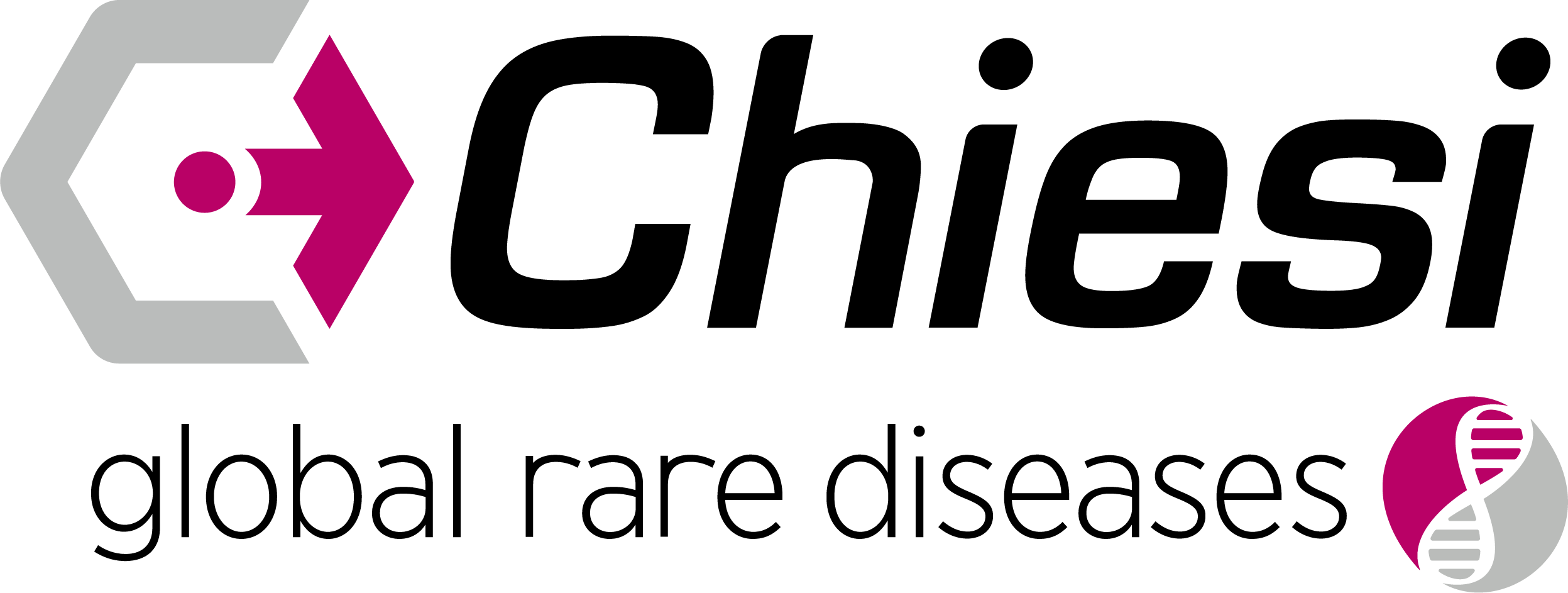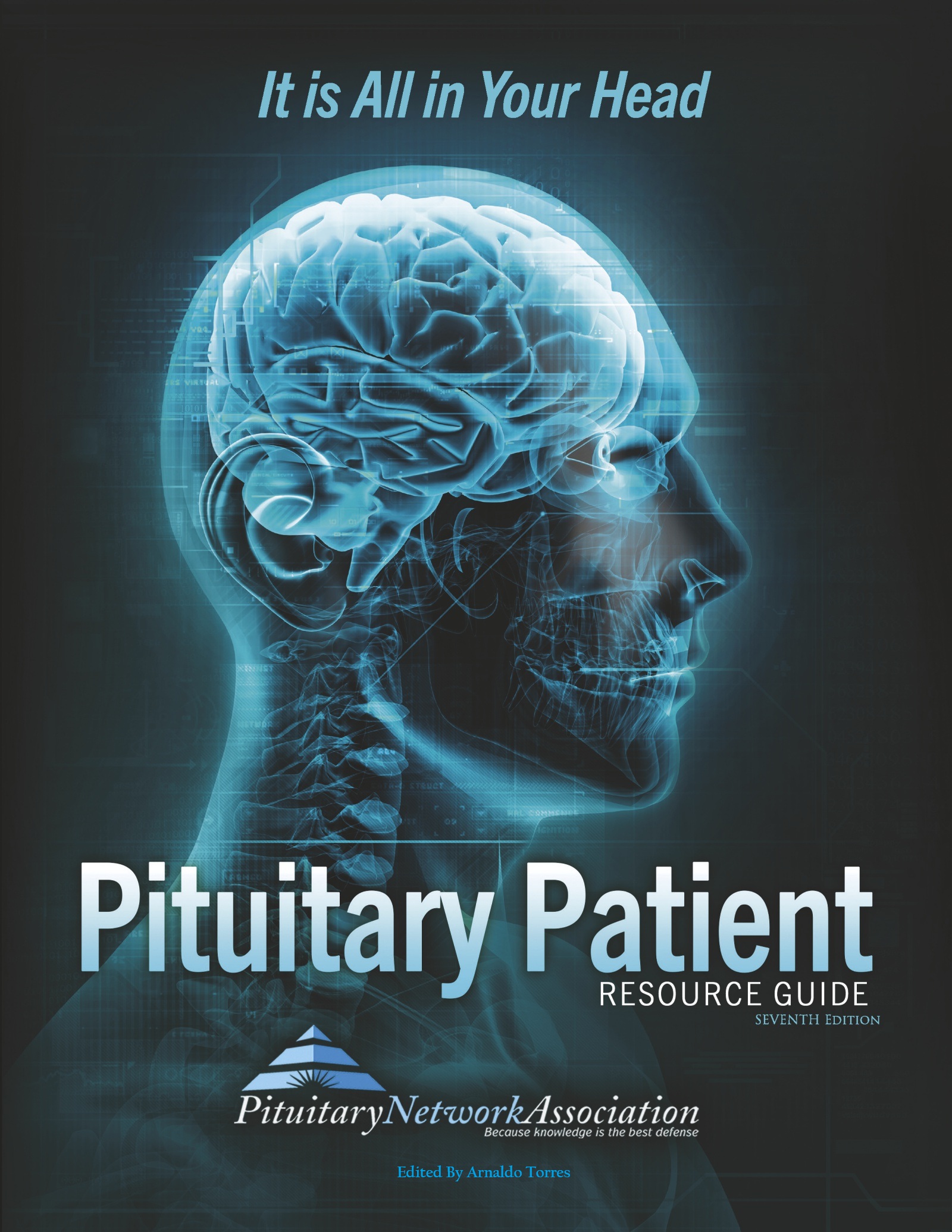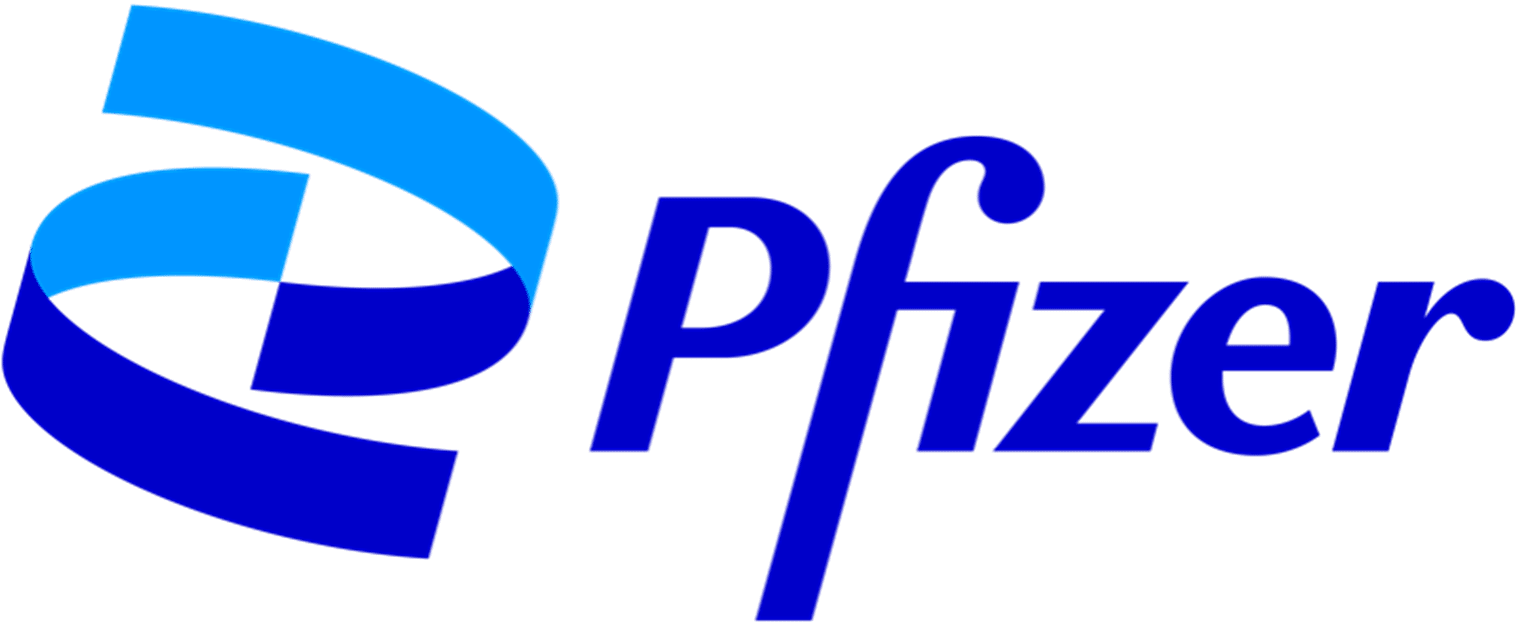News Articles February 2022
Written on 04 February 2022.
Turning Pain Into Passion
Suggestion: This workbook maybe more effective in combination with a professional therapist or a life coach, always consult a medical professional whenever necessary.
My Life Is About Me
Getting Started
Questioning Your Reactions
Watch Your Mouth
Grateful For Our Mistakes
Gratitude, Gratitude, Gratitude
Breaking Through
“What lies behind us and what lies before us are tiny matters compared to what lies within us.”
~Oliver Wendell Holmes~
Presenter Bio
Sharmyn McGraw
Patient Advocate, Author, Facilitator: BTC Pituitary Patient Support Group
Phone: 888.410.3334; Fax: 888.410.3334
Website: www.hormones411.org
After Sharmyn’s own pituitary surgery more than 14 years ago, she and Dr. Kelly founded a pituitary tumor patient support group in Los Angeles. The group has grown and now mails out more than 1000 invitations to attend their bi-monthly patient support and educational meetings. The meetings are recorded and put on online to help support patients from all around the world. For more information, please see their support group page at:
www.brain-tumor.org/360_Brain_Tumor_Patient_Support_Group.html
Sharmyn’s in-depth understanding of pituitary disorders comes from personal experience as a patient. In addition, over the years she has met and helped hundreds of patients from many parts of the world. Her story illustrates the barriers that left her searching for seven years for an explanation for this insidious illness that nearly took her life. She also discusses the importance of persistence – which led her to the correct diagnosis: Cushing’s disease. Cushing’s is a life-threatening hormonal imbalance caused by a pituitary brain tumor. For the past 14 years, Sharmyn has been dedicated to helping medical professionals as well as the public to understand the critical role hormones play in our quality of life.
Sharmyn’s Highlights:
The Discovery Health channel- “Mystery Diagnosis” airing all around the world. The Montel show NBC and Medstar News Specials CNN, Woman’s Day magazine, Woman & Home magazine-London. Pearson/Prentice Hall Publishing, “Biology of Humans” Medical Book, American Medical Association Media Conference-NY and the National Institute of Woman’s Health (NIH) and more.
Sharmyn McGraw
Patient Advocate, Author, Facilitator: BTC Pituitary Patient Support Group
Description
This workbook is based on the author’s personal experiences and is not to replace any medical treatments. It is designed to help you break through personal blocks and discover inside of yourself a more passionate life.
Suggestion: This workbook maybe more effective in combination with a professional therapist or a life coach, always consult a medical professional whenever necessary.
My Life Is About Me
Getting Started
Questioning Your Reactions
Watch Your Mouth
Grateful For Our Mistakes
Gratitude, Gratitude, Gratitude
Breaking Through
“What lies behind us and what lies before us are tiny matters compared to what lies within us.”
~Oliver Wendell Holmes~
Presenter Bio
Sharmyn McGraw
Patient Advocate, Author, Facilitator: BTC Pituitary Patient Support Group
Phone: 888.410.3334; Fax: 888.410.3334
Website: www.hormones411.org
After Sharmyn’s own pituitary surgery more than 14 years ago, she and Dr. Kelly founded a pituitary tumor patient support group in Los Angeles. The group has grown and now mails out more than 1000 invitations to attend their bi-monthly patient support and educational meetings. The meetings are recorded and put on online to help support patients from all around the world. For more information, please see their support group page at:
www.brain-tumor.org/360_Brain_Tumor_Patient_Support_Group.html
Sharmyn’s in-depth understanding of pituitary disorders comes from personal experience as a patient. In addition, over the years she has met and helped hundreds of patients from many parts of the world. Her story illustrates the barriers that left her searching for seven years for an explanation for this insidious illness that nearly took her life. She also discusses the importance of persistence – which led her to the correct diagnosis: Cushing’s disease. Cushing’s is a life-threatening hormonal imbalance caused by a pituitary brain tumor. For the past 14 years, Sharmyn has been dedicated to helping medical professionals as well as the public to understand the critical role hormones play in our quality of life.
Sharmyn’s Highlights:
The Discovery Health channel- “Mystery Diagnosis” airing all around the world. The Montel show NBC and Medstar News Specials CNN, Woman’s Day magazine, Woman & Home magazine-London. Pearson/Prentice Hall Publishing, “Biology of Humans” Medical Book, American Medical Association Media Conference-NY and the National Institute of Woman’s Health (NIH) and more.
Endoscopic Endonasal Approach for Surgical Resection of Suprasellar Craniopharyngiomas
Dr. James K. Liu is the Director of the Center for Skull Base and Pituitary Surgery at the Neurological Institute of New Jersey, Rutgers University. He is a board-certified neurosurgeon and Associate Professor of Neurological Surgery and Otolaryngology-Head and Neck Surgery at Rutgers New Jersey Medical School.
Dr. Liu is renowned for his treatment of complex brain tumors and skull base lesions, including pituitary tumors, acoustic neuromas, meningiomas, craniopharyngiomas, and chordomas. He is highly regarded for his technical expertise in endoscopic transsphenoidal surgery for pituitary tumors and other suprasellar lesions. As a fellowship trained skull base and cerebrovascular neurosurgeon, Dr. Liu performs the most innovative surgical techniques, including minimally invasive endoscopic endonasal surgery, image-guided keyhole microsurgery, and laser-assisted tumor surgery to achieve the best results for his patients.
Dr. Liu has published extensively with over 190 peer-reviewed publications and 20 textbook chapters. He has taught many hands-on courses in skull base surgery and has lectured extensively throughout North America, Europe, and Asia. Dr. Liu is an active member of the American Association of Neurological Surgeons, Congress of Neurological Surgeons, North American Skull Base Society, Pituitary Network Association, Acoustic Neuroma Association, and The Facial Pain (Trigeminal Neuralgia) Association.
James K. Liu, MD, FAANS
Associate Professor of Neurological Surgery
Director, Center for Skull Base and Pituitary Surgery
Co-Director, Endoscopic Skull Base Surgery Program
Rutgers New Jersey Medical School
Description
Presenter Bio
Dr. James K. Liu is the Director of the Center for Skull Base and Pituitary Surgery at the Neurological Institute of New Jersey, Rutgers University. He is a board-certified neurosurgeon and Associate Professor of Neurological Surgery and Otolaryngology-Head and Neck Surgery at Rutgers New Jersey Medical School.
Dr. Liu is renowned for his treatment of complex brain tumors and skull base lesions, including pituitary tumors, acoustic neuromas, meningiomas, craniopharyngiomas, and chordomas. He is highly regarded for his technical expertise in endoscopic transsphenoidal surgery for pituitary tumors and other suprasellar lesions. As a fellowship trained skull base and cerebrovascular neurosurgeon, Dr. Liu performs the most innovative surgical techniques, including minimally invasive endoscopic endonasal surgery, image-guided keyhole microsurgery, and laser-assisted tumor surgery to achieve the best results for his patients.
Dr. Liu has published extensively with over 190 peer-reviewed publications and 20 textbook chapters. He has taught many hands-on courses in skull base surgery and has lectured extensively throughout North America, Europe, and Asia. Dr. Liu is an active member of the American Association of Neurological Surgeons, Congress of Neurological Surgeons, North American Skull Base Society, Pituitary Network Association, Acoustic Neuroma Association, and The Facial Pain (Trigeminal Neuralgia) Association.
Hormonal Follow Up After Surgery and Effects of Long-Term Medication
Dr. Blevins’ main clinical interests are in the evaluation and management of patients with various disorders of the pituitary gland and hypothalamus. He has particular expertise with regards to Cushing’s syndrome and has edited a book on the subject. He also has extensive experience in treating patients with acromegaly, prolactinoma’s, other pituitary tumors, diabetes insipidus, and hypopituitarism. He has extensive experience in the management of patients with growth hormone deficiency. Dr. Blevins is medical director of the California Center for Pituitary Disorders at UCSF.
His current research interests involve diagnostic testing in patients with hypercortisolism. He is currently evaluating new ways to test for the presence of Cushing’s syndrome. He is also interested in clinical predictors of surgical and medical success with regards to the management of patients with different types of pituitary tumors. Some of this work involves collaboration with neuropathologists at UCSF. Dr. Blevins is also involved with industry sponsored trials to evaluate new pharmacologic therapies for patients with pituitary tumors.
Lewis S. Blevins Jr., MD
Professor of Clinical Medicine and Clinical Neurological Surgery
Medical Director, California Center for Pituitary Disorders at UCSF
Description
Presenter Bio:
Dr. Blevins’ main clinical interests are in the evaluation and management of patients with various disorders of the pituitary gland and hypothalamus. He has particular expertise with regards to Cushing’s syndrome and has edited a book on the subject. He also has extensive experience in treating patients with acromegaly, prolactinoma’s, other pituitary tumors, diabetes insipidus, and hypopituitarism. He has extensive experience in the management of patients with growth hormone deficiency. Dr. Blevins is medical director of the California Center for Pituitary Disorders at UCSF.
His current research interests involve diagnostic testing in patients with hypercortisolism. He is currently evaluating new ways to test for the presence of Cushing’s syndrome. He is also interested in clinical predictors of surgical and medical success with regards to the management of patients with different types of pituitary tumors. Some of this work involves collaboration with neuropathologists at UCSF. Dr. Blevins is also involved with industry sponsored trials to evaluate new pharmacologic therapies for patients with pituitary tumors.
Functional Outcomes After Surgery for Pituitary Tumors
The mechanisms that allow this anatomy to cause three of the common types of symptoms that patients with lesions in the pituitary gland like nonfunctional pituitary adenomas or Rathke’s cleft cysts can present with: headaches, endocrine dysfunction, and visual impairment
The impact of transsphenoidal surgery on each of these three types of symptoms that patients with nonfunctional adenomas present with, and factors predictive of postoperative improvement.
Presenter Bio
Dr. Manish Aghi is a neurosurgeon specializing in the treatment of pituitary adenomas and other tumors of the anterior skull base by minimally invasive endonasal approaches. He has an MD and PhD from Harvard Medical School in Boston and did his neurosurgery residency at the Harvard affiliated Massachusetts General Hospital (MGH). Since joining UCSF six years ago, he has performed nearly 500 endonasal operations for pituitary tumors and, as the leader of an active clinical research program, he has published 24 articles on surgical technique and outcomes for pituitary tumor patients. He is currently directing a national effort sponsored by the Congress of Neurological Surgeons to establish evidence-based guidelines for neurosurgeons caring for patients with pituitary tumors.
Dr. Aghi also runs an NIH funded basic science laboratory investigating the molecules that allow pituitary tumors to grow and invade, and he is working with industry collaborators to develop molecular inhibitors that may someday be of benefit to prevent these processes. He is principal investigator of a pair of phase I/II clinical trials of experimental treatments for malignant brain tumors.
Manish Aghi, MD, PhD
Neurosurgeon
Director, Center for Minimally Invasive Skull Base Surgery (MISB), California Center for Pituitary Disorders (CCPD)
Associate Professor, University of California, San Francisco Department of Neurological Surgery
Description
The anatomy of the pituitary gland from a patient’s and surgeon’s perspective
The mechanisms that allow this anatomy to cause three of the common types of symptoms that patients with lesions in the pituitary gland like nonfunctional pituitary adenomas or Rathke’s cleft cysts can present with: headaches, endocrine dysfunction, and visual impairment
The impact of transsphenoidal surgery on each of these three types of symptoms that patients with nonfunctional adenomas present with, and factors predictive of postoperative improvement.
Presenter Bio
Dr. Manish Aghi is a neurosurgeon specializing in the treatment of pituitary adenomas and other tumors of the anterior skull base by minimally invasive endonasal approaches. He has an MD and PhD from Harvard Medical School in Boston and did his neurosurgery residency at the Harvard affiliated Massachusetts General Hospital (MGH). Since joining UCSF six years ago, he has performed nearly 500 endonasal operations for pituitary tumors and, as the leader of an active clinical research program, he has published 24 articles on surgical technique and outcomes for pituitary tumor patients. He is currently directing a national effort sponsored by the Congress of Neurological Surgeons to establish evidence-based guidelines for neurosurgeons caring for patients with pituitary tumors.
Dr. Aghi also runs an NIH funded basic science laboratory investigating the molecules that allow pituitary tumors to grow and invade, and he is working with industry collaborators to develop molecular inhibitors that may someday be of benefit to prevent these processes. He is principal investigator of a pair of phase I/II clinical trials of experimental treatments for malignant brain tumors.
Management of a Patient with a Prolactinoma
Laurence Katznelson, MD
Professor of Neurosurgery and Medicine
Medical Director, Pituitary Center
Director, Endocrinology Fellowship Training Program
Stanford University School of Medicine
Description
Laurence Katznelson, MD received his medical degree from the University of California, Los Angeles and performed his internship and residency in Internal Medicine at the Hospital of the University of Pennsylvania, Philadelphia. He then performed a fellowship in endocrinology and metabolism at the Massachusetts General Hospital, Boston. After serving as faculty at Massachusetts General Hospital, Dr. Katznelson relocated to the Stanford University School of Medicine where he is a Professor of Medicine and Neurosurgery. Dr. Katznelson is currently the Medical Director of the Pituitary Center at Stanford University Medical Center, Stanford, California. At Stanford University, he is the Program Director for the Endocrine fellowship training program. He is the interim Associate Dean for Graduate Medical Education. In the Endocrine Society, Dr. Katznelson was the previous Chair of the Special Programs Committee and member of the Scientific and Educational Programs Core Committee. He has served as an ad hoc member of NIH study sections. He has chaired the task force for writing the updated 2011 guidelines on the approach to acromegaly for the American Association of Clinical Endocrinologists, and he is the current chair for the task force for the development of clinical guidelines for acromegaly for The Endocrine Society. Dr. Katznelson is the Chair of the Pituitary and Neuroendocrine Scientific Committee for the American Association of Clinical Endocrinologists. Dr. Katznelson has a long standing clinical and research interest in the pathophysiology and treatment of pituitary disease.
Advances and Limitations of Endoscopic Pituitary Surgery
Paul A. Gardner, MD, Associate Professor, Department of Neurological Surgery, University of Pittsburgh School of Medicine, and Co-Director, Center for Cranial Base Surgery, University of Pittsburgh Medical Center.
Dr. Gardner joined the faculty of the Department of Neurological Surgery at the University of Pittsburgh School of Medicine in 2008 after completing his residency and fellowship training at the University of Pittsburgh. He completed his undergraduate studies at Florida State University, majoring in biochemistry, and received his medical degree from the University of Pittsburgh School of Medicine.
Dr. Gardner completed a two-year fellowship in endoscopic endonasal pituitary and endoscopic and open skull base surgery at the University of Pittsburgh Medical Center. His research has focused on evaluating patient outcomes following these surgeries and more recently on molecular phenotyping of rare tumors. He is recognized internationally as a leader in the field of endoscopic endonasal surgery, a minimally invasive surgical approach to the skull base. His other surgical interests include pituitary tumors, open cranial base surgery, vascular surgery, minimally invasive surgery and neuro-oncology.
Dr. Gardner is a member of the American Association of Neurological Surgeons, Congress of Neurological Surgeons, and the North American Skull Base Society. He has published numerous peer-reviewed articles, which can be reviewed through the National Library of Medicine’s publication database, and lectures frequently at local, national, and international scientific meetings.
Paul Gardner, MD
Assistant Professor of Neurological Surgery
Co-Director of Skull Base Surgery
University of Pittsburgh Medical Center
Description
Presenter Bio
Paul A. Gardner, MD, Associate Professor, Department of Neurological Surgery, University of Pittsburgh School of Medicine, and Co-Director, Center for Cranial Base Surgery, University of Pittsburgh Medical Center.
Dr. Gardner joined the faculty of the Department of Neurological Surgery at the University of Pittsburgh School of Medicine in 2008 after completing his residency and fellowship training at the University of Pittsburgh. He completed his undergraduate studies at Florida State University, majoring in biochemistry, and received his medical degree from the University of Pittsburgh School of Medicine.
Dr. Gardner completed a two-year fellowship in endoscopic endonasal pituitary and endoscopic and open skull base surgery at the University of Pittsburgh Medical Center. His research has focused on evaluating patient outcomes following these surgeries and more recently on molecular phenotyping of rare tumors. He is recognized internationally as a leader in the field of endoscopic endonasal surgery, a minimally invasive surgical approach to the skull base. His other surgical interests include pituitary tumors, open cranial base surgery, vascular surgery, minimally invasive surgery and neuro-oncology.
Dr. Gardner is a member of the American Association of Neurological Surgeons, Congress of Neurological Surgeons, and the North American Skull Base Society. He has published numerous peer-reviewed articles, which can be reviewed through the National Library of Medicine’s publication database, and lectures frequently at local, national, and international scientific meetings.
Pituitary Disorders and the Family
Learning Objectives
- Learn about the primary effects of chronic and/or serious illness on the family
- Learn what is meant by the “family system”
- Learn what is meant by “collaborative’ and “integrated” care
- Identify ways pituitary disorders impact the family system
- Learn ways family members can positively impact healing
- Learn what can be the role of a “family therapist” in helping families affected by a pituitary tumor or other endocrine disorder
Presenter Bio
Jamie Banker is the Director of Counseling Psychology Masters program and Assistant Professor of Psychology at California Lutheran University in Thousand Oaks California. She is a Licensed Marriage and Family Therapist and has a special interest in integrated behavioral healthcare. She completed a clinical master’s degree at University of San Diego and completed her doctoral degree at Virginia Tech. Dr. Banker was a doctoral intern at Dartmouth College Family Medicine Residency. Dr. Banker has worked in three integrated primary care practices as a therapist and a lecturer. She has published scholarly articles and a few book chapter on integrated healthcare. Now her focus is on training Marriage and Family Therapy students to work in integrated behavioral healthcare sites. She is an AAMFT approved clinical supervisor. Dr. Banker’s research agenda centers on women’s and family’s health. It encompasses topics that are both underserved and burgeoning in the fields of psychology, marriage and family therapy, behavioral medicine, and public health. Dr. Banker’s primary research interests are collaboration between family therapists and medical professionals, family health and training integrated care professionals. These interests all fall under the larger umbrella of improving individuals’ overall healthcare. Her research agenda is focused on decreasing the gap between medical and mental health assessment and treatment. Dr. Banker’s current research is on understanding postpartum depression and disorders of the endocrine system from a biopsychosocial model.
- Jamie L. Banker, Ph.D.
Director of Counseling Psychology
California Lutheran University
Description
Family systems theories have influenced this turn, as it becomes clear that focusing on a problem with one family member acknowledges only one part of the affected system. In this presentation Dr. Banker will talk about what is meant by the “family system,” what is meant by “collaborative’ and “integrated” care, Dr. Banker will identify ways pituitary disorders impact the family system, She will discuss ways family members can positively impact healing and learn what can be the role of a “family therapist” in helping families affected by a pituitary tumor or other endocrine disorder. Dr. Banker will also talk about her most recent research connecting the early childhood trauma and pituitary disorders.
Learning Objectives
- Learn about the primary effects of chronic and/or serious illness on the family
- Learn what is meant by the “family system”
- Learn what is meant by “collaborative’ and “integrated” care
- Identify ways pituitary disorders impact the family system
- Learn ways family members can positively impact healing
- Learn what can be the role of a “family therapist” in helping families affected by a pituitary tumor or other endocrine disorder
Presenter Bio
Jamie Banker is the Director of Counseling Psychology Masters program and Assistant Professor of Psychology at California Lutheran University in Thousand Oaks California. She is a Licensed Marriage and Family Therapist and has a special interest in integrated behavioral healthcare. She completed a clinical master’s degree at University of San Diego and completed her doctoral degree at Virginia Tech. Dr. Banker was a doctoral intern at Dartmouth College Family Medicine Residency. Dr. Banker has worked in three integrated primary care practices as a therapist and a lecturer. She has published scholarly articles and a few book chapter on integrated healthcare. Now her focus is on training Marriage and Family Therapy students to work in integrated behavioral healthcare sites. She is an AAMFT approved clinical supervisor. Dr. Banker’s research agenda centers on women’s and family’s health. It encompasses topics that are both underserved and burgeoning in the fields of psychology, marriage and family therapy, behavioral medicine, and public health. Dr. Banker’s primary research interests are collaboration between family therapists and medical professionals, family health and training integrated care professionals. These interests all fall under the larger umbrella of improving individuals’ overall healthcare. Her research agenda is focused on decreasing the gap between medical and mental health assessment and treatment. Dr. Banker’s current research is on understanding postpartum depression and disorders of the endocrine system from a biopsychosocial model.
Medical Therapy in Cushing’s Disease: New Targets, New Hope!
Learning Objectives
- Assess available therapies, including new medical options for Cushing’s disease
- Evaluate patient response to therapy for Cushing’s disease
- Discuss possible combination therapy for treatment of hypercortisolemia
Presenter Bio
Dr Fleseriu is an Associate Professor of Medicine and Neurological Surgery and Director of the Northwest Pituitary Center at Oregon Health & Science University (OHSU), Portland, OR, USA. She graduated summa cum laude from the University of Medicine and Pharmacy of Timisoara, Romania and completed residency training in internal medicine and an endocrinology fellowship with a focus in pituitary disorders in Romania. Subsequently, she completed an additional internal medicine residency at Case Western Reserve University, and an endocrinology fellowship at Cleveland Clinic in the US.
Dr Fleseriu has a long-standing clinical and research interest in the pathophysiology and treatment of pituitary and adrenal diseases and has published extensively, including several book chapters. Her recent research is devoted to new treatments of pituitary tumors; internationally collaborative studies include treatment with short- and long-acting novel multiligands somatostatin analogs, adrenal steroidogenesis inhibitors and glucocorticoid receptor blocker. She is a frequent national and international guest speaker on various topics related to treatments of pituitary tumors, especially acromegaly and Cushing’s disease. She is a senior editor for Endocrinology, Diabetes & Metabolism CR, a guest editor for the Cushing’s syndrome issue for International Journal of Endocrinology, a long-time member of the editorial boards for Pituitary and Faculty of 1000 and a reviewer for numerous journals. She also currently serves on The Endocrine Society Clinical Guidelines Committee.
Her clinical practice focuses on the diagnosis and treatment of pituitary and adrenal tumors and pituitary dysfunction, with a particular interest in acromegaly and Cushing’s disease. As the Director of the Northwest Pituitary Center at OHSU, Dr Fleseriu champions a balanced approach to clinical management, combining the most recent advances in the field of neuroendocrinology and the aggressive pursuit of multidisciplinary research. She has been a PNA collaborator for several years and she authored several chapters regarding Cushing’s syndrome, pituitary disorders in women, headache and acromegaly in the PNA’s Wiley-Blackwell book: “Pituitary Disorders: Diagnosis and Management” and the 5th edition of the Pituitary Patient Resource Guide.
Maria Fleseriu, M.D.
Northwest Pituitary Center Departments of Medicine and Neurological Surgery, Oregon Health & Science University
Description
Learning Objectives
- Assess available therapies, including new medical options for Cushing’s disease
- Evaluate patient response to therapy for Cushing’s disease
- Discuss possible combination therapy for treatment of hypercortisolemia
Presenter Bio
Dr Fleseriu is an Associate Professor of Medicine and Neurological Surgery and Director of the Northwest Pituitary Center at Oregon Health & Science University (OHSU), Portland, OR, USA. She graduated summa cum laude from the University of Medicine and Pharmacy of Timisoara, Romania and completed residency training in internal medicine and an endocrinology fellowship with a focus in pituitary disorders in Romania. Subsequently, she completed an additional internal medicine residency at Case Western Reserve University, and an endocrinology fellowship at Cleveland Clinic in the US.
Dr Fleseriu has a long-standing clinical and research interest in the pathophysiology and treatment of pituitary and adrenal diseases and has published extensively, including several book chapters. Her recent research is devoted to new treatments of pituitary tumors; internationally collaborative studies include treatment with short- and long-acting novel multiligands somatostatin analogs, adrenal steroidogenesis inhibitors and glucocorticoid receptor blocker. She is a frequent national and international guest speaker on various topics related to treatments of pituitary tumors, especially acromegaly and Cushing’s disease. She is a senior editor for Endocrinology, Diabetes & Metabolism CR, a guest editor for the Cushing’s syndrome issue for International Journal of Endocrinology, a long-time member of the editorial boards for Pituitary and Faculty of 1000 and a reviewer for numerous journals. She also currently serves on The Endocrine Society Clinical Guidelines Committee.
Her clinical practice focuses on the diagnosis and treatment of pituitary and adrenal tumors and pituitary dysfunction, with a particular interest in acromegaly and Cushing’s disease. As the Director of the Northwest Pituitary Center at OHSU, Dr Fleseriu champions a balanced approach to clinical management, combining the most recent advances in the field of neuroendocrinology and the aggressive pursuit of multidisciplinary research. She has been a PNA collaborator for several years and she authored several chapters regarding Cushing’s syndrome, pituitary disorders in women, headache and acromegaly in the PNA’s Wiley-Blackwell book: “Pituitary Disorders: Diagnosis and Management” and the 5th edition of the Pituitary Patient Resource Guide.
The Nutrition-Endocrine Connection: Out of Chaos, Into Balance
Learning Objectives
To provide an understanding of the role that nutrition plays in neuroendocrine conditions.
To discuss some of the specific conditions and treatment approaches a Registered Dietitian uses in addressing select neuroendocrine disorders.
Understand the impact of the gastro-intestinal system on neuroendocrine system.
To explore the interaction between weight (excess), neuroendocrine involvement and health care practitioner attitudes.
Presenter Bio
Carmina Cuilty McGee, MS, RDN, LE, is a Registered Dietitian, Clinical Nutritionist, and Licensed Esthetician in private practice, specializing in an integrative mind-body approach to working with endocrine health issues. Ms. McGee received a Bachelor of Science Degree in Nutrition and Dietetics from Cal Poly San Luis Obispo and earned her Masters Degree in Nutrition from California State University at Northridge. A core focus in her practice and expertise is in guiding patients to create neuroendocrine balance through improved nutrition, supportive lifestyle practices, a mindful approach to eating, self-care and living. Conditions she works with include: Polycycstic Ovarian Syndrome, Thyroid conditions, Insulin Resistance, Diabetes and Gastro-intestinal disorders. She works collaborately with a wide variety of health care practitioners, consults to an endocrinology practice and has a specialized expertise in skin health – an issue in many endocrine disorders.
- Carmina Cuilty-McGee, MS, RDN, LE
Description
The connection between neuroendocrine disorders and nutrition is often not considered by other healthcare specialists treating neuroendocrine disorders. Working with a skilled Registered Dietitian Nutritionist (RDN) should be a part of the assessment and treatment process and can contribute greatly to improving the patient’s health. The RDN provides unique knowledge and skills that can integrate with other health practitioners treating patients with neuroendocrine imbalances. In this webinar we will explore the intersection of nutrition and lifestyle factors in terms of how they can improve and impact neuroendocrine balance.
Learning Objectives
To provide an understanding of the role that nutrition plays in neuroendocrine conditions.
To discuss some of the specific conditions and treatment approaches a Registered Dietitian uses in addressing select neuroendocrine disorders.
Understand the impact of the gastro-intestinal system on neuroendocrine system.
To explore the interaction between weight (excess), neuroendocrine involvement and health care practitioner attitudes.
Presenter Bio
Carmina Cuilty McGee, MS, RDN, LE, is a Registered Dietitian, Clinical Nutritionist, and Licensed Esthetician in private practice, specializing in an integrative mind-body approach to working with endocrine health issues. Ms. McGee received a Bachelor of Science Degree in Nutrition and Dietetics from Cal Poly San Luis Obispo and earned her Masters Degree in Nutrition from California State University at Northridge. A core focus in her practice and expertise is in guiding patients to create neuroendocrine balance through improved nutrition, supportive lifestyle practices, a mindful approach to eating, self-care and living. Conditions she works with include: Polycycstic Ovarian Syndrome, Thyroid conditions, Insulin Resistance, Diabetes and Gastro-intestinal disorders. She works collaborately with a wide variety of health care practitioners, consults to an endocrinology practice and has a specialized expertise in skin health – an issue in many endocrine disorders.
Pituitary Hormone Replacement in Women
Understand the importance of pituitary hormones in women
Learn the main causes of hypopituitarism or pituitary hormone deficiencies
Learn the signs and symptoms of hypopituitarism in women
Understand the basics of hormonal diagnosis and decision to treat
Learn the goals and risks of pituitary hormone replacement in women
Presenter Bio
Dr. Ioachimescu graduated from Carol Davila University of Medicine in Bucharest, Romania. She underwent postgraduate training in Europe in Internal Medicine and Endocrinology, Metabolism and Diabetes. Dr. Ioachimescu earned a PhD in Neuroendocrinology from the same university in 2001, then completed additional training in Internal Medicine and Endocrinology at Yale University and the Cleveland Clinic in the United States. Dr. Ioachimescu is an Associate Professor of Medicine and Neurological Surgery at Emory University in Atlanta.
Dr. Ioachimescu’s clinical activities currently focus on diagnosis and endocrine management of pituitary diseases. She is Co-Director of the Emory Neuroendocrine Pituitary Center, a premier tertiary center for neuroendocrine care for patients with pituitary tumors.
Dr. Ioachimescu has authored multiple original research articles and chapters in the fields of pituitary diseases, adrenal tumors, metabolism, thyroid and bone disorders. Her current research is focused on pituitary tumors pathogenesis and outcomes, with the purpose of validation of prognostic markers and development of novel therapies for patients with neuroendocrine disorders.
- Adriana G. Ioachimescu, MD, PhD, FACE
Associate Professor, Co-Director
Pituitary Center at Emory University
Emory University School of Medicine
Description
Learning Objectives:
Understand the importance of pituitary hormones in women
Learn the main causes of hypopituitarism or pituitary hormone deficiencies
Learn the signs and symptoms of hypopituitarism in women
Understand the basics of hormonal diagnosis and decision to treat
Learn the goals and risks of pituitary hormone replacement in women
Presenter Bio
Dr. Ioachimescu graduated from Carol Davila University of Medicine in Bucharest, Romania. She underwent postgraduate training in Europe in Internal Medicine and Endocrinology, Metabolism and Diabetes. Dr. Ioachimescu earned a PhD in Neuroendocrinology from the same university in 2001, then completed additional training in Internal Medicine and Endocrinology at Yale University and the Cleveland Clinic in the United States. Dr. Ioachimescu is an Associate Professor of Medicine and Neurological Surgery at Emory University in Atlanta.
Dr. Ioachimescu’s clinical activities currently focus on diagnosis and endocrine management of pituitary diseases. She is Co-Director of the Emory Neuroendocrine Pituitary Center, a premier tertiary center for neuroendocrine care for patients with pituitary tumors.
Dr. Ioachimescu has authored multiple original research articles and chapters in the fields of pituitary diseases, adrenal tumors, metabolism, thyroid and bone disorders. Her current research is focused on pituitary tumors pathogenesis and outcomes, with the purpose of validation of prognostic markers and development of novel therapies for patients with neuroendocrine disorders.
Available Now!
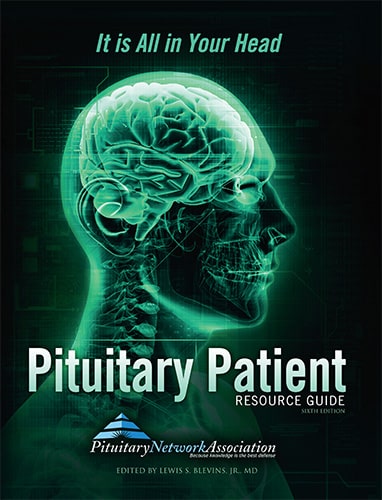
The Pituitary Patient Resource Guide Sixth Edition is now available! Be one of the first to have the most up-to-date information. The Pituitary Patient Resource Guide a one of a kind publication intended as an invaluable source of information not only for patients but also their families, physicians, and all health care providers. It contains information on symptoms, proper testing, how to get a diagnosis, and the treatment options that are available. It also includes Pituitary Network Association's patient resource listings for expert medical care.

Xeris Pharmaceuticals is valued member of the PNA



